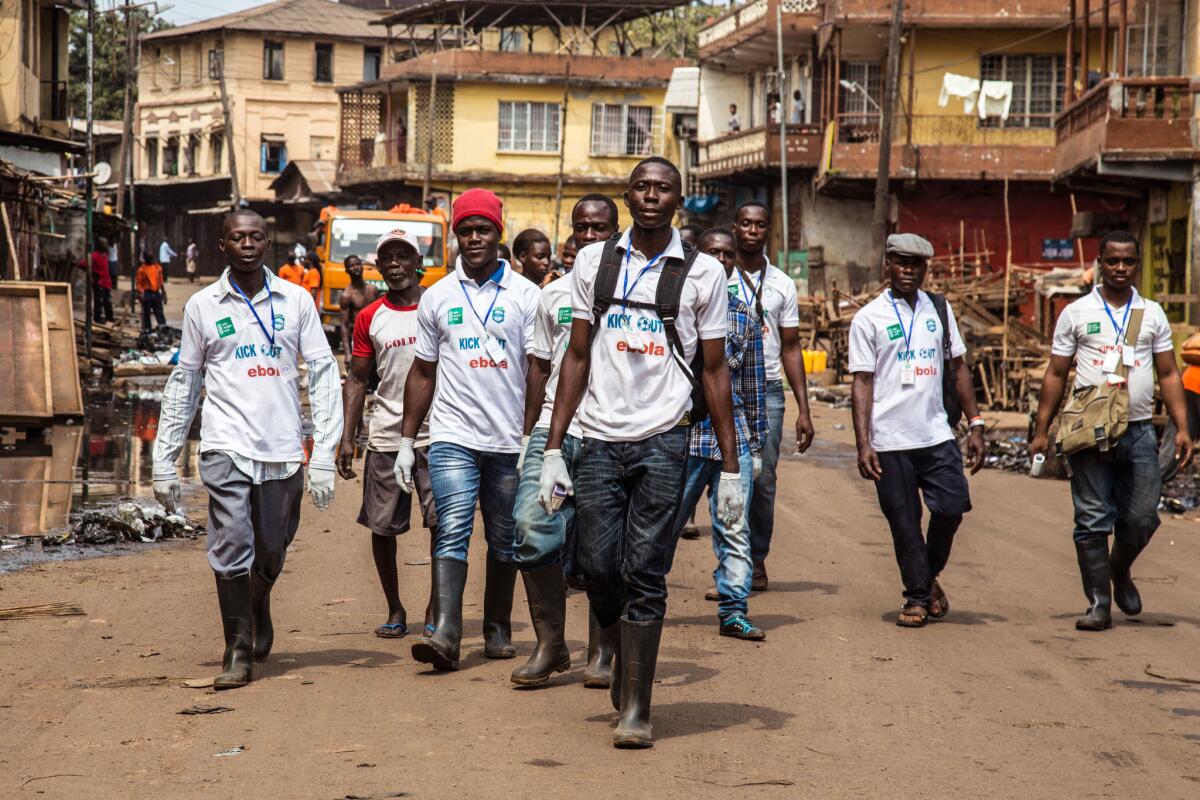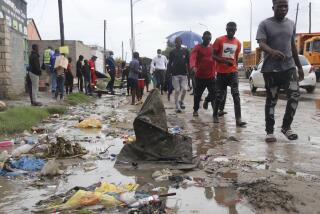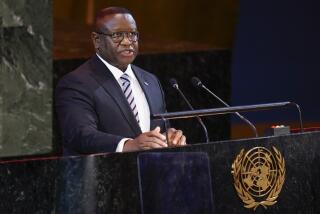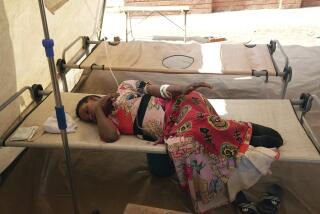New Ebola cases frustrate hopes of defeating the virus in Sierra Leone

A team of health workers searches for people suffering from Ebola during an education drive in Freetown, Sierra Leone, in March.
Two new Ebola cases have been identified in Sierra Leone’s capital in recent days, frustrating hopes that the deadly virus may have been defeated there.
The announcement by the country’s National Ebola Response Center followed a resurgence of cases in the northeast of the country, where President Ernest Bai Koroma this month ordered troops to enforce quarantines and a nighttime curfew in the districts of Kambia and Port Loko.
“Complacency is our biggest challenge,” Koroma said in announcing the measures. “Now more than ever is the time we must all remain vigilant in our households and communities.”
Sierra Leone was one of the West African countries hardest hit by the Ebola outbreak, accounting for nearly a third of the 11,000 people killed since last year, according to figures released by the World Health Organization.
Neighboring Liberia was declared Ebola-free in May, and the number of known cases in Sierra Leone dropped to just two that month. But the figure has increased again, with 14 cases recorded in Kambia and Port Loko in the week ending June 15, the WHO said.
The capital, Freetown, had gone without any new cases since May 29. The new patients there include a fisherman who caught the hemorrhagic fever from his girlfriend in Port Loko, according to the Reuters news agency. A family member who lived in the same household was also infected.
The family lives in Magazine Wharf, a densely populated slum, raising concern about the possibility of further spread.
“This is worrisome because we had already closed all Ebola quarantine structures in Freetown since we had gone for weeks without a case,” Sidi Yahya Tunis, a spokesman for Sierra Leone’s Ebola response, told Reuters.
There is no confirmed cure or vaccine for Ebola. Outbreaks are contained by tracing all the people who may have been exposed to the virus; isolating those who develop symptoms so that they don’t spread the disease further; and safely burying the dead. A country is declared Ebola-free 42 days after the last patient recovers or is buried.
The world’s largest Ebola outbreak began in late 2013 in a remote part of Guinea that borders Sierra Leone and Liberia, and spread as far as Europe and the United States.
At its peak, hundreds of cases were being reported each week. That figure has dropped to a couple of dozen in recent weeks, but officials warn that it could be tough to bring the number of patients in Guinea and Sierra Leone down to zero.
Of particular concern is that some of the latest cases weren’t on any of the lists of people known to have been exposed to the virus and were diagnosed only after their deaths, making it extremely difficult to figure out how they became infected and to whom they may have spread the virus.
The stepped-up measures announced by Koroma in Sierra Leone are aimed at preventing what WHO described as the “secret movement of cases, contacts and dead bodies that has propagated transmission over the past two months.”
For more international news, follow @alexzavis on Twitter.
More to Read
Start your day right
Sign up for Essential California for news, features and recommendations from the L.A. Times and beyond in your inbox six days a week.
You may occasionally receive promotional content from the Los Angeles Times.







